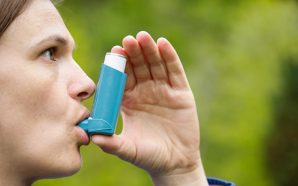If at-home treatments and over-the-counter ointments have not been adequate in improving your eczema symptoms, don’t despair because there are more potent treatments that can improve your skin and ease your symptoms.
Steroids
If you are experiencing an intense outbreak, your doctor can prescribe oral, topical, or intravenous steroids. Steroids are highly effective in reducing inflammation, which can improve your eczema symptoms rapidly. However, given that they can also cause adverse side effects, prolonged use of steroids in any form is not recommended.
Keep in mind, though, that upon stopping your steroid treatment, your eczema symptoms may recur. The only way to avoid flare-ups is to rely on self-care strategies to keep your skin healthy.
Antihistamines
While antihistamines do not directly prevent or improve flare-ups, they are effective in easing itching. Over-the-counter options such as Benadryl and prescription-strength choices such as Atarax are highly effective, but keep in mind that they also cause drowsiness.
Immunosuppressant Drugs
There are some drugs free of steroids such as cyclosporine and mycophenolate that work by inhibiting the immune system reaction that results in your eczema symptoms. These medications relieve itching an improve the skin’s appearance, but they can cause side effects such as digestive problems and high blood pressure. Immunosuppressants can also increase one’s risk of infections and certain types of cancers.
Tacrolimus and pimecrolimus are the most commonly prescribed topical treatments to relieve the irritation and itching associated with eczema. However, because these medicines may have a connection to an increased risk of skin cancer, they must only be used short-term.
Light Therapy
Light therapy or phototherapy involves the use of a device that exposes controlled amounts of sunlight to the skin to lessen inflammation and itching. Over 70% of individuals with severe, persistent eczema report improved symptoms following a month of phototherapy.
Antibiotics
Antibiotics are technically not prescribed to treat eczema directly, but if your rashes become infected, your doctor may need to prescribe you oral or topical antibiotics.
Counseling
Eczema can affect a patient’s mental health as well as their skin health by bringing on feelings of anxiety, irritability, and despair. Strong emotions, especially stress and anxiety, can worsen the symptoms of eczema as well, so talk therapy can be essential in coping with the impact eczema has on your life. Joining a support group can also be therapeutic as it provides patients with a platform to share their feelings and issues with those who can relate to them the most.
Stress Management
Even without therapy, managing your stress level is important in preventing flare-ups. There are some very effective ways eczema patients can rely on to relieve stress, including meditation, hypnosis, and biofeedback. Biofeedback helps you become familiar with your body’s reactions to stressful situations so you can learn to remain calm.
Featured Image: Depositphotos/© j.dudzinski







